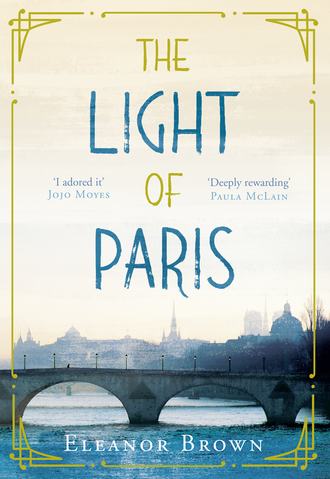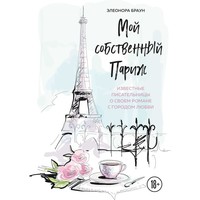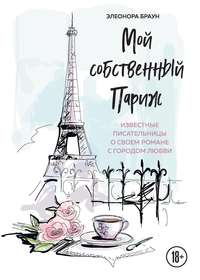
Полная версия
The Light of Paris
Squaring her shoulders, Margie shook her head. She marched herself downstairs and into the dining room, where her parents were eating breakfast. As usual, her father was hidden behind a newspaper. Her mother was drinking tea and did not, to Margie’s surprise, throw it in her face when she slid into her chair.
“Good morning,” her father said from behind his paper.
“Good morning,” Margie muttered. She took a piece of toast from the toast rack and spread it with marmalade.
Her mother lifted her eyes above her teacup, saying nothing. Margie chewed her toast, the crack of the crumbs between her teeth loud as artillery fire.
Finally, her father turned the last page of his paper, folded it, and put it on the table. Margie swallowed hard, the dry toast scraping its way down her throat.
“You’re going to Europe,” he said. Her father had the habit of starting conversations wherever his own thought process was, which generally caused a great deal of confusion and required catching up on the part of the listener.
“I’m sorry?” she asked. Of all the possible scenarios she had imagined last night, many of them deeply melodramatic, inspired by Gothic novels and a handful of Valentino movies, being sent to Europe had not been high on the list. Hadn’t been anywhere on the list, really.
“I’ll book your ticket today. Your mother will take you to New York and you will leave from there.”
“I don’t understand.” Was this supposed to feel like a punishment? A banishment? Europe. Margie had dreamed of going, of course, but it had always seemed just that—a dream.
“Your cousin Evelyn is going on her Tour.” Margie’s mother spoke finally. She lifted her napkin, dabbing carefully at the edges of her mouth, though there was nothing there, and Margie wished, sadly, for the millionth time, that she had been born with the tiniest amount of her mother’s poise. “And she’s in need of a chaperone. You’re to go with her.”
“But,” Margie started to object, and then closed her mouth. Evelyn was eighteen and incorrigible. Margie and Evelyn, being the only two cousins close in age, had been thrust together at family gatherings for years, and Margie was ashamed to admit Evelyn had bullied her from the start. Spoiled, demanding, and domineering, Evelyn took great pleasure in ordering Margie around. In their games, Evelyn was the princess, Margie the lady-in-waiting. Evelyn was the knight, Margie was the steed. Evelyn was the brave hero, Margie the (actually fairly ineffectual) villain. Evelyn was greatly experienced in setting up situations to her best advantage, and Margie would rather have eaten broken glass than spend six months traveling with her.
Except the alternative wasn’t broken glass. It was a lifetime with Mr. Chapman. And in contrast, dragging Evelyn to art galleries sounded like an absolute treat. And in Europe! London! Paris! Rome! The cobblestone streets, the cathedrals, the opera houses, the museums, the castles, the princes. Margie sighed a dreamy sigh.
Her mother, catching Margie’s slip into fancy, frowned. “You’ll be responsible for Evelyn, you understand. They’re sending her on the Tour in hopes that she will … mature somewhat. And frankly, I’m hoping the same thing for you. You’ve proven yourself unwilling to accept any responsibility here. I pray, for your sake, Margie, that this trip teaches you the value of everything you seem to think so little of.” She took a sip of her tea, but from the way her lips were pursed, she might as well have been drinking grapefruit juice.
She could have argued. But here she was, twenty-four and unmarried, and her best—well, only—prospect was someone she would marry only if he were the last eligible man on earth, and even then she would have to think hard on it. So here were her options: embrace her destiny as a maiden aunt to one of New York City’s most notorious harpies, or marry Mr. Chapman and be doomed to decades of conversations about municipal bonds and tax acts.
“When do I leave?” Margie asked.
five
MADELEINE
1999
Despite my exhaustion, I had stayed up late reading my grandmother’s journals, and I dreamed of flappers and debutante balls all night. When I woke in the morning, I was sleepy and disoriented. I blinked at the ceiling a few times, wondering why it was a different color, until I remembered where I was. Thought of Phillip. My mother. Sharon. Tensed, relaxed. Tensed again.
It was almost nine o’clock, which wasn’t entirely surprising. I had always been a morning person, but after I had gotten married, there was no reason to get up. “It wouldn’t look right for you to work. People would think I can’t support you,” Phillip had told me when I had started to browse the want ads, and when I said I would like to anyway, he was so irritated I had put the argument aside. At first I thought it might just be for a year, and then a year had grown into two, and then somehow the compromise I had made as a momentary peace offering had become permanent. When I had started volunteering at the Stabler, I had been desperate for the contact, the purpose, the meaning. The volunteer coordinator had told me she’d never had anyone master the entire collection of presentations so quickly, which had made me feel slightly embarrassed, but no less eager.
Downstairs, I could hear my mother moving around, a door opening and closing, her quick, efficient steps on the floor. For a moment, I imagined I was a child again, and I could run down to the kitchen and my father would be sitting with his newspapers at the table and I could steal the funny pages and we would read in silence together. It felt so real, the smudges of newsprint on my fingers, the smell of his coffee, the way he would clear his throat as he read an interesting story in the paper, that I caught my breath and held it in for a moment to keep from crying, overwhelmed with memory and confusion and loss.
And then, as if to remind me of the hierarchy of needs and nostalgia’s place in it, my stomach growled loudly. The night before, my mother had gone out and all I’d had to eat was a handful of stale crackers and some cheese of questionable freshness that tasted a lot like dirt. I sighed, pushing back the covers and dragging myself out of bed. I had been sleeping in an oversized shirt and a pair of boxer shorts, which was exactly what I loved to sleep in, and exactly what Phillip would never allow, and I looked down at my rumpled self, shrugged, and headed downstairs.
My mother’s refrigerator was as empty as it had been the night before. I took a swig of sweet tea from the carafe inside (sure, there was no food, but my mother clearly had her standards), wiping my mouth with the back of my hand, and prowled through the pantry and the rest of the cupboards, coming up empty.
As a last-ditch resort, I headed out into the back yard, padding barefoot through the moist grass, still damp with dew and the remnants of the morning’s sprinkler run, the perfect, soft blades tickling my ankles. Summer was my favorite season in my mother’s garden, when everything was exploding, wild and ripe, but it was already beautiful that spring. Early roses were opening, arching their stems as they spread their petals to the sun. The fruit trees bore pale leaves and buds extended blindly from the branches, testing the air. The herb garden held rows of low, cautious greenery, and the hedges and stones bordering the ornamental garden waited patiently for everything to bloom so they would have something to contain. Ducking under one of the apple trees, I walked over to the vegetable garden by the low fence.
It was really too early for anything to be ripe, but I pawed through the leaves, thinking nostalgically of summer afternoons when I would sneak through my mother’s kitchen garden, leaves brushing against my face, and pluck a fat, warm tomato from where it lay, sleeping heavily on the ground, and eat it like an apple, wet juice and seeds and plump, yielding skin. It was months too early for tomatoes, but I found a miracle in the form of a patch of strawberry runners, bearing tiny but inarguably red fruit. I picked them greedily, two at a time, eating one while I held my shirt out to make a basket and dropped the other in there. They were firm and not as juicy as they would be in a few weeks, but they were sweet and fresh and my stomach accepted them gratefully.
When I finally rose up, my tongue stained red, my shirt containing another handful or two of berries, I looked down over the other side of the fence and saw a man crouching low underneath the leaves of a pepper plant. He blinked at me solemnly through the green.
With a startled yelp, I stepped backward into a clump of soft dirt, nearly losing my balance and dropping the strawberries.
“I’m sorry, I’m sorry.” He rose, holding his hands out in surrender. He was wearing gardening gloves and holding a rubber mallet in one hand. Now that he was standing instead of crouching in the bushes like a serial killer, he looked much less threatening, even considering the mallet. His T-shirt was stretched out, with holes at the bottom, and his loose khakis had smudges of dirt all over them. His eyes were fringed with lashes I would have traded him for in a second, and his eyebrows were a little too thick, and he had shaggy brown hair and an equally shaggy beard. He looked like a large, friendly family dog. “I thought you were Mrs. Bowers.”
“You were hiding from my mother in the bushes?”
He gave a sheepish shrug. A pair of headphones hung around his neck, the cord trailing down into his pocket, where a Discman pushed the line of his pants out of shape.
“Mrs. Bowers is your mother? She doesn’t like me much,” he said, and he sounded disappointed about it.
“Buck up. She doesn’t like anybody, really. Not even me.”
“I’m sure that’s not true.” He had a comforting drawl that marked him as a local. Tilting his head, he looked at me curiously. “You don’t favor her at all.” His Discman was still playing; I could hear the tinny squeal of guitars issuing from the headphones into the still air, already heavy and wet, preparing itself for the hard work of humidity ahead.
Self-consciously, I reached for my hair with one hand, patting it down. I generally woke with a spectacular case of bedhead, and I hadn’t even bothered to look in the mirror before stumbling downstairs. No, at that moment I probably looked even less like my mother than usual.
“Oh, we’re not related,” I said. “I was hatched from a walnut shell.”
To my surprise, he threw back his head and laughed, a rich, low sound that rang through the morning. “You’re funny.”
I blinked at him. “Nobody thinks I’m funny.”
“I do,” he said, looking surprised.
“Well, there’s no accounting for taste, as my mother would say. Who are you, anyway?”
“I’m so sorry.” He pulled his gloves off and politely extended a hand to me. I took it, and instantly regretted it—my fingers were strawberry-sticky. “I’m Henry Hamilton. And you’re The Heiress Bowers.”
“You can call me Madeleine. No honorific necessary. And my last name is Spencer. I’m married.” I don’t know why I clarified my marital status, as though he might be interested in my pajama-clad, strawberry-stained self. Not that Henry was anyone to impress, really. He was perfectly nice-looking, but in general I wanted to take a pair of clippers to him, trim back the wildness of his curls, the scruffiness of his beard. He wasn’t especially tall, but he was broad-shouldered and big of hand, and at the moment, covered in dirt. My mother would have been horrified by the first impressions we were making.
“Madeleine Spencer. It’s a pleasure. So now you know my hiding place. May I ask why you’re creeping around in the garden?”
“My mother doesn’t keep any food in the house. She survives on Melba toast and the blood of her enemies.”
He barked out another laugh, his curls bouncing. “You’re lucky. Those strawberries shouldn’t be ripe for another two weeks.”
“Yet another one of the myriad ways fortune smiles upon me. What about you? Do you work at the restaurant?”
“I own it, actually.”
“Congratulations. My mother thinks you’re Satan for opening it next to her house, by the way.”
Henry winced. “I know. I feel awful. She’s an incredible gardener. I’d hoped we might have something to talk about.”
I looked over his shoulder at his garden, which was all function, long, straight rows of turned earth, tomato cages and strawberry planters standing sentry, stakes at regular intervals to separate out the crops. “Do you grow all this food for the restaurant?”
“As much as I can.”
“That’s amazing.”
“I’d like to grow more. I wish your mother would talk to me. I have so many questions about how she gets such incredible produce, but she refuses to talk to me.”
“Well, you don’t have to worry about it for much longer. She’s selling the house, apparently.”
Henry lifted a broad fist to his chest. “Mon Dieu!” he said. Okay, no, he didn’t, but he looked so surprised, his eyes opening wide, his hand clutching his itty-bitty sledgehammer to his heart as though he were a well-armed heroine in a Regency romance. “Oh no! Was it something I said?”
“Hmm. She does hate you a little bit.”
“Yes, she’s made that fairly clear. I invited everyone in the neighborhood for a private dinner before we opened. Everyone came except her. And this one other couple, but I gave them a bye because the wife was giving birth.”
“Generous of you.”
“I like to think of myself as a magnanimous neighborhood overlord,” he said, giving a little bow and then returning the mallet to his side. “In any case, your mother marched the invitation back over to me and told me exactly what I could do with it.”
“My mother? I don’t think so.”
“Well, there were no specific body parts suggested, but the phrase ‘ruining the neighborhood’ might have been involved.”
“Huh. Well, if anyone could tell you in a polite way that you’re ruining the neighborhood, it would be my mother.”
“So I’ll extend the invitation to you instead. You should come to dinner sometime. My treat.”
“That’s a very kind offer,” I said politely, but my stomach, hearing the suggestion of food, growled again quite rudely.
“You should get back to your strawberries,” he said, nodding at my impromptu basket.
“You should get back to your lurking.”
“Can’t lurk all day if you don’t start in the morning,” he said, with such genuine cheerfulness that I couldn’t help but laugh. “Nice to meet you, Madeleine.”
“Likewise.”
Trying to keep from exposing myself in my flimsy boxer shorts, I took a few steps backward, the earth yielding gently beneath me. How long had it been since I had felt the ground beneath my bare feet? It was delicious and made me feel oddly like weeping. When Henry went back to his work, I turned and began to walk toward the house, looking up at its sprawl, the empty windows winking back at me in the sun.
It had always been my destiny to have a big house like this, filled with antiques and enough furniture for dinner parties and enough lawn space to host a fundraiser. It was what everyone I had gone to school with was doing; my mother sent me casually remonstrative pages from the Magnolia Providence-Journal and Magnolia Style, in which the girls I had once known, now women, were photographed hosting luncheons at their home with distinguished guests.
But I didn’t want a house like this. I felt lost in our condo, which was not even a quarter as big, and still more than we required. I dreaded the day Phillip would announce we were going to move to the suburbs and I would have to hire a housekeeper and a gardener, a pool service. I far preferred a life I didn’t need assistance to maintain.
I finished eating the strawberries and tossed the hulls in an oversized planter by the French doors leading into the living room. Inside, the house was still. “Mother?” I called.
“Good, you’re awake.” My mother came bustling into the kitchen, carrying her purse and a stack of papers. Of course, I was still in my pajamas with sleep in my eyes and my hair standing on end, while my mother, who had probably been up since five, had her hair and makeup perfectly done and was armored in a pair of charcoal-gray slacks, a lavender cardigan, and a scarf knotted neatly around her neck like an air hostess.
“Sentient, even.”
Конец ознакомительного фрагмента.
Текст предоставлен ООО «ЛитРес».
Прочитайте эту книгу целиком, купив полную легальную версию на ЛитРес.
Безопасно оплатить книгу можно банковской картой Visa, MasterCard, Maestro, со счета мобильного телефона, с платежного терминала, в салоне МТС или Связной, через PayPal, WebMoney, Яндекс.Деньги, QIWI Кошелек, бонусными картами или другим удобным Вам способом.




